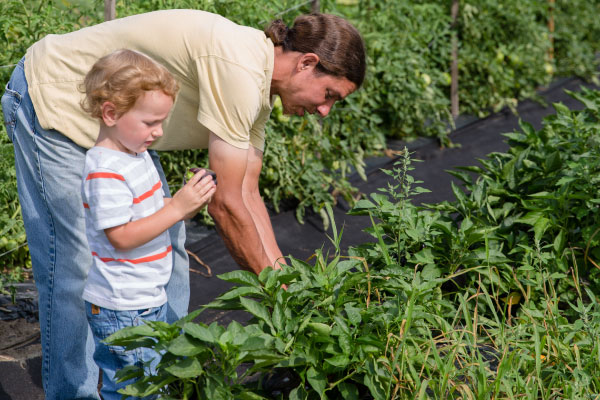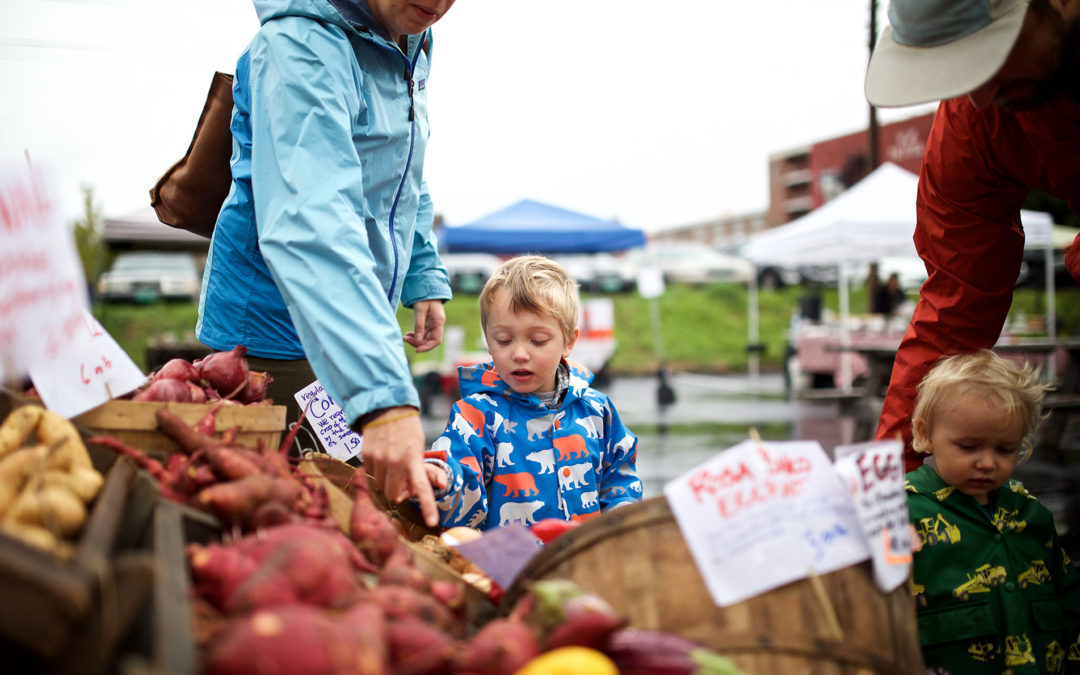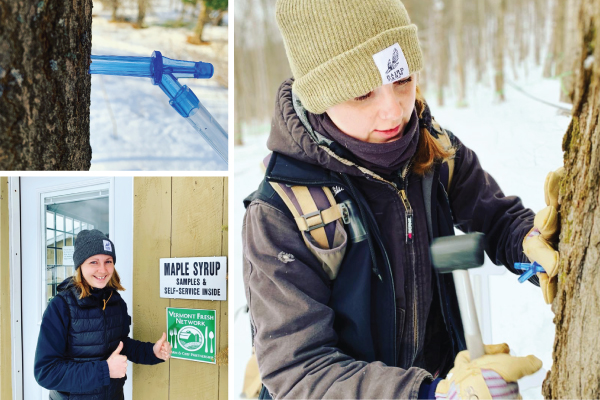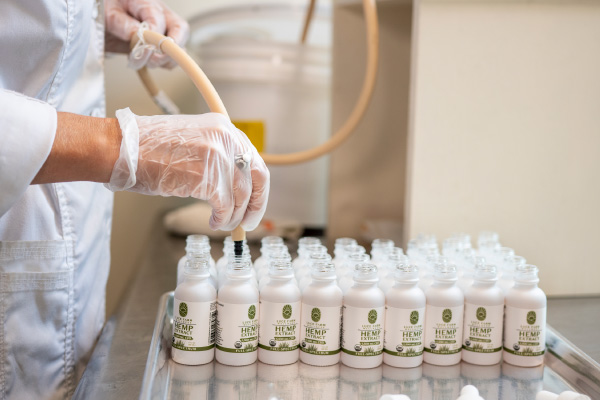Author: Laura Carbonneau
The winter months in New England can sometimes be a challenge when trying to source produce locally. The harsh, northern climate makes for a shorter growing season. At Food Connects, we are lucky to work with farms like Basin Farm, located in Westminster, VT, that grow storage crops to feed our communities during the long winter months. Learn more about the farm and Farm Manager, David Langmaid’s story.
As I was growing up I was always thrilled to be able to visit the farm, kick off my shoes, and run through the fields. I loved to pick fresh produce and eat it and help care for the animals. When I was an older child and we were able to move onto the farm, I enjoyed caring for the animals and helping with the gardening. I lived in different places after that but we would try to have a few animals and do what “farming” we could. When I was a young adult I was able to move back onto the Basin Farm and I started working on the farm full time. To me, farming is a great way to care for people. It is a great place to raise a family with good values.
We, at the Basin Farm, are a community of people who work together in everything that we do. We came across the Basin Farm in the early 1990s as we were looking for a local place where we could grow good food for our people. The Basin Farm was historically a dairy farm and was being used for growing feed corn. We went through the Organic certification process and began growing produce along with grains such as spelt and heirloom wheat.
Since our primary goal is in providing good food for our immediate community, it is very important to us to be able to store what we can through the months that we can not be growing it in the fields. This principle is what enables us to have storage crops such as sweet potatoes, potatoes, butternut squash, carrots, and beets all through the winter and into the spring. We save many of our own seeds so that they are locally adapted to our climate and to our specific growing challenges. Nearly all of the varieties that we grow are heirloom (not even organic hybrids) which is a challenging learning curve but is rewarding in the nutrient-dense crops and natural disease resistance that can be achieved.
We like to feed the soil through different forms of re-mineralization such as good compost and leaf compost, several different bio-active products sourced from the sea, along with diligent crop rotation and cover-cropping of various types. We strive to feed the plants what they need which will strengthen their immune system to ward off disease and even harmful pests and in turn, the food will be as good as possible for our own bodies.
Food Connects has helped us to have a place where we could sell some of our “excess” without having to do a lot of marketing. And we appreciate all of the support from the many retail outlets, co-ops, schools, restaurants, buying clubs, and individuals that have enjoyed our products.
This story by Food Connects originally appeared at https://www.foodconnects.org/fh-news-hub/2021/01/11/producer-spotlight-basin-farm




